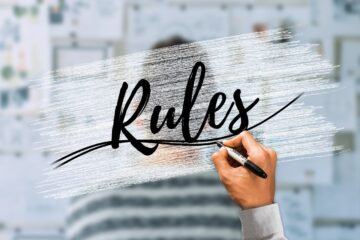![]()
Introduction:
Election is not a new concept for the people and the society. It is a concept that is much familiar to the people of a democratic country. Election means choosing one representative out of two or more competitive chooses. In other words, election means making chooses between the people who will govern the public functions. Election is a much older concept. It was first used in Greece and Rome in the medieval period to select the ruler out of many competitive options. In India, the first-ever election was held back in the Vedic era where the people elected the king of tribes such as Gana etc. In 754 B.C. the first recorded popular Election of officials to public office was conducted in Sparta. Election is the word that was first used by the people in Greece and Rome in the medieval period. The main objective to bring this concept into the play was to curb the dictatorship or autocracy from the society and promote democracy and fair election. Many countries have adopted the Doctrine of Election to bring more transparency and fairness in the selection process of an individual or group of individuals to the public office.
The process of election is not new for all countries worldwide. Many countries have adopted elections as the basis to select their representative to govern the public function. Many countries also have an election commission department that governs and set certain rules and regulations for the candidate taking part in the elections. In some, the election commission is also responsible for holding elections and counting of votes. In the countries like United States, India, Canada, etc. the importance of electoral commission increases. For a democratic country, the elections are the basis through which an individual or a group of individuals forms government. In a country of dictatorship, the doctrine of election might not be of much importance as compared to a democratic country. The term election and democracy both go hand in hand when it comes to governing a state.
Elections are an essential part of every republic country. Republic countries such as United States, India, and Australia are completely dependent on elections for the selection of the individuals who are like to govern the public functions. Through the process of election, people can give their representatives special powers and immunity which a general person might not have. Elections give an individual power and authority to represent a state or a nation. Thus, the Doctrine of Election is very vital for society. In today’s time, the importance of democracy and election has increased worldwide. Now-a-days, when we talk about fundamental rights and duties, the election of representatives thus becomes a more feasible process for the selection of individuals who might govern the public functions.
Hence the doctrine of election becomes more important where people have to choose an individual or representative among many competitive options.
Why Elections are important?
Election plays a prominent role in a democratic state. Elections are very much important due to some reason which are listed below:
Legal Perspective:
- Electing Representatives: Election helps the people to choose their favorite representatives among two or more candidates. Through elections, there are better chances for a competitive person to hold public offices. More-over elections help in bringing more fairness and transparency in the process of selection. Thus, election makes the process of selecting individuals much simpler and easier for a democratic country.
- By the People: Another biggest advantage of an election is that it is by the people. It means that the people elect their representatives who govern the state and the government office. Hence the Election in a democratic country is by the people, with the people, and for the people.
- Establishment of rule of law: With elections, there are high chances for the establishment of the rule of law in the country. Mostly in a democratic country where elections are contested, the rule of law prevails in their legal and democratic structure.
- Equality: The biggest advantage of elections is that it promotes equality and harmony in the society. In democratic countries such as India, the United States, Canada etc equality among the citizens is the most vital key for smooth and peaceful working of the nation.
- No Transfer of powers to the kin: Fair elections also helps in prohibiting the transfer of powers to the kin. Unlike autocracy, the election in a democratic country increases the chances of a more competitive candidate to win the contest.
Social Perspective:
- Justice: The doctrine of election help in giving justice to every citizen of the state or the nation. With elections, the justice delivery system might get improved.
- Society upliftment: Election helps in the upliftment of the society and every individual who is a part of the society. Elections gives an individual an entity in the society.
- Growth and development: Elections help in the growth and development of every individual and the society.
Hence, these are some advantages of election which makes this concept more essential for the state.
On the other hand, elections also have some disadvantages which make it more complicated to adopt for a society. Some of the disadvantages are listed below:
- Limited number of chooses: In elections, there are limited chooses and the people have to choose the best candidate for the public office among few chooses. Sometimes, limited chooses may restrict the people to elect the best candidate who is the most deserving and suitable for job and representation of their state or nation.
- Chances of bad decisions: The biggest disadvantage of elections is that there are very high chances of people electing undeserving candidates for the post. Hence there is a very high chance of people making bad decisions between the choices.
- Buying of votes and other malpractices: Elections may sometimes, give birth to malpractices such as buying of votes by the undeserving candidates etc. Therefore, elections may sometimes give rise to many malpractices which make this doctrine difficult for many countries to adopt.
Hence these are some Problems or disadvantages of election which prohibits the state and society to adopt.
Theories of Election
Behavioral Theory
Most theories of elections assume that voters and political actors are fully rational. While these formulations produce many insights, Most theories of elections assume that voters and political actors are fully rational. The rise of behavioral economics has posed new challenges to the premise of rationality. This ground breaking book provides a behavioral theory of elections based on the notion that all actors–politicians as well as voters–are only boundedly rational. The theory posits learning via trial and error: actions that surpass an actor’s aspiration level are more likely to be used in the future, while those that fall short are less likely to be tried later.
Based on this idea of adaptation, the authors construct formal models of party competition, turnout, and voters’ choices of candidates. These models predict substantial turnout levels, voters sorting into parties, and winning parties adopting centrist platforms. In multiparty elections, voters are able to coordinate vote choices on majority-preferred candidates, while all candidates garner significant vote shares. Overall, the behavioral theory and its models produce macro implications consistent with the data on elections, and they use plausible micro assumptions about the cognitive capacities of politicians and voters.
Theory of Rational Choice
The rational choice model recognizes that most voters are not strong identifiers and have no real connection with the political parties. They are essentially unaligned and consequently, as Ivor Crewe once remarked, “votes are up for grabs”.
Voters then decide how to vote based on a series of judgments made about several relevant factors. So, voting behavior is influenced by a combination of the party’s track record, election manifesto, the party leaders, and key party players. This means that voters make a decision not based on class, age, ethnicity or gender, or party identification but on who will benefit them and their families. It is worth noting here that different issues matter to different people at different times of their lives at different elections. For example, it could be the NHS is the most important issue if you have an elderly parent or young child or immigration is the most important issue if you are affected by it negatively or positively.
The political scientists Butler and Stokes identified what makes an issue salient, which means what makes an issue something that will affect a vote. They identified four conditions which were that voters must be aware of the issue, voters must have an opinion on an issue, voters must detect a difference between parties on the issue, and voters must convert their preference into actually voting for the party whose views on the issues approximate to their own.
Theory of Participation in Election
Participation is commonly defined as the act of taking part in some action. ‘Political participation’, hence, is largely assumed as an act of taking part in ‘political’ action. However, such a definition often varies in political science due to the ambiguities surrounding what can be conceived as ‘political’ actions. Within this general definition, the perception of political participation varies by differing modes, intensities, and qualities of participation. From voting to directly influence the implementation of public policies, the extent to which political participation should be considered appropriate in political theory is, to this day, under debate. Participatory democracy is primarily concerned with ensuring that citizens are afforded an opportunity to participate or otherwise be involved in decision making on matters that affect their lives.
Game Theory
The concept of game theory has been implemented to show voter behavior between dominant party voters and individual candidate voters. Game theory outlines the various combinations of actions and outcomes that will take place on election day between these two sets of voters and eliminates the unfavorable combinations and brings out the most viable and lucrative options for both groups of voters.
Conclusion
The importance of elections in the republic country is much more as compared to an autocratic country. In the countries like India and the U.S.A, the importance of election increases because the election is the only process through which a candidate can be elected out of two or more chooses who might govern the public functions. The doctrine of election might not be of much importance for a country ruled by a ruler but for a Federal country, it is the most vital structure which forms the state or the government. The main objective of elections is to achieve equality and freedom. With elections, there are very high chances of bringing transparency and peace to society. The doctrine of election and democracy are both incomplete without each other.
Therefore, it becomes essential to critically analyze the doctrine of election.
Hence the election is the process of selection of an individual or the group of individuals who will govern the public office. Through contesting elections people can elect their favorite representatives out of few given choices. Elections are the only medium through which a deserving person or candidate wins. The candidate who has the maximum number of votes wins the election. The elections are considered to be fairer because people get enough time to think and choose the best option among the others.
However, the concept of election is not new but some countries might find difficulty in adapting to this structure of selection by the people. Some of the monarchy countries such as the United Kingdom, United Arab Emirates, North Korea have found difficulties in changing their structure to the democratic one. This is mainly because there is a lack of willingness and adaptiveness in their attitude which has restricted them to adopt certain changes. The people and the government of the countries with monarchy structure must realize and understand the importance of choosing a representative by the people and the citizens of the country. The choice of the selection of rulers who will represent them and the state is the biggest need for the people. People of every country want to elect their favorite ruler who will govern all the public functions. Hence the importance of the right to elect becomes very important because every citizen has certain expectations with its rulers who will represent them and their community at an international level.
So, the term election becomes more important for the people and the society.
The doctrine of election has been very crucial since its origin in the medieval period by Greece and Rome. The elections may be difficult to contest but this is the only way to achieve peace and tranquillity in the society. With election people may also realize their value and importance in the society. Elections also helps in promoting competitiveness and finding the most suitable person for the job and their representation.
Therefore, election is a very crucial part of every formal structure of the state or the nation. With elections, people might find it easy to elect their favorite candidate and we can also say that the concept of an election has removed all the scope of confusion for the people.
Hence, the doctrine of election might be tricky for some countries but it is the only way to maintain peace, harmony, and equality in society.



0 Comments